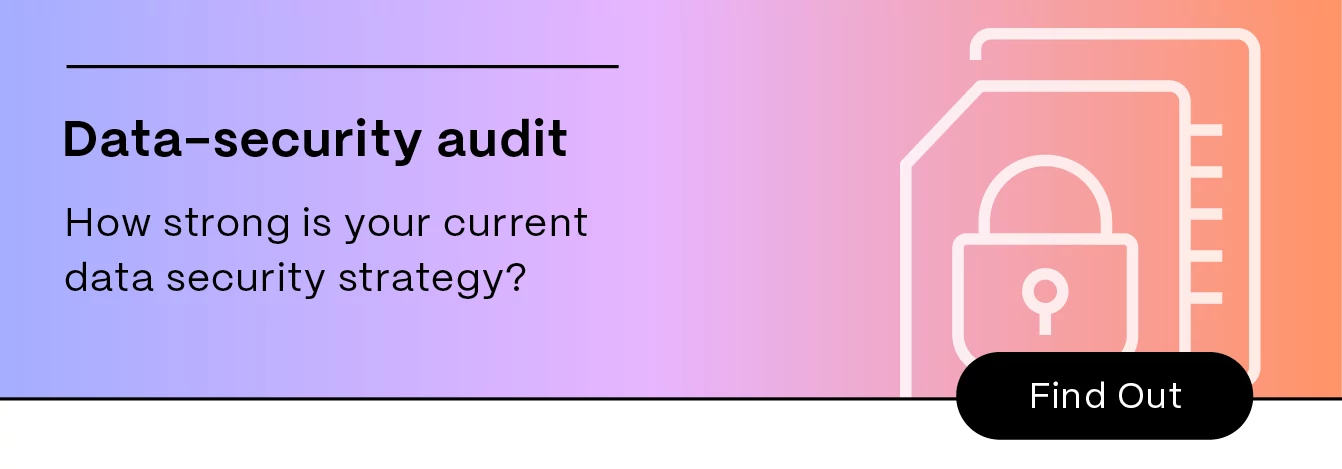
Blog
Guide to data room for investors: checklist and best practices

Investors deal with a large number of files and documents that need to be kept secure and organized. Data rooms help support this, facilitating smoother negotiations and transactions during the investment process.
In a previous article, we shared how to choose and structure a data room for mergers and acquisitions (M&A). In this guide, we explain what you need to know when using a data room for all investment transactions like private equity, venture capital, and initial public offerings (IPOs).
Read on for an understanding of what a data room for investors is, best practices for using one, and a checklist of what’s needed to make it investor ready.
What is a data room for investors?
A data room for investors, also known as a virtual data room (VDR), is a secure online space to store and share documents during an investment transaction. VDRs make it both safe and simple to share files with potential investors, buyers, and other authorized parties.
Data rooms are used during financial transactions and due diligence processes, providing a secure and efficient way to exchange information. This streamlines negotiations and decision making, helping to close deals faster.
The global virtual data room market is expected to reach over $3B by 2025. Key VDR features and benefits that investors should prioritize, include:
- Enhanced security: Data rooms are designed with encryption, access controls, and activity monitoring to safeguard sensitive information from unauthorized access, breaches or leaks.
- Organization for easier navigation: An effective data room makes it easy for investors to find and review files. Categories like financial statements, legal documents, intellectual property, and contracts keep everything organized and easy to find.
- Improved collaboration and efficiency: Multiple approved parties can access the data room simultaneously. All involved stakeholders can seamlessly collaborate regardless of their physical location.
- Controlled access: VDR administrators can manage permissions such as who has access to which documents and for how long. This ensures confidential information is only seen by those who are authorized to access it.
- Auditing and tracking: Audit trails and detailed reporting capabilities provide transparency and accountability, allowing administrators to track activity like document views and downloads within the data room.
- Regulatory compliance: For transactions involving regulated industries or compliance standards (e.g., HIPAA, GDPR), VDRs help ensure data handling practices meet regulatory requirements.
Best practices for managing an investor data room
Well-managed VDRs play a critical role in maintaining confidentiality, facilitating efficient due diligence, and ensuring a straightforward transaction process. Follow these best practices to help your next investment go smoothly.
Create a system for document organization
Keeping your investment documents organized goes beyond folder structures and categories. These are important conventions to implement, but you also need to maintain version control across all documents to keep everything up-to-date and avoid confusion.
Comprehensive indexing and tagging systems help with understanding complex documents. Always use summaries and outlines of key points to support users looking to quickly reference information. You should also establish clear protocols for removing files from the data room once a document is no longer needed. This helps maintain the integrity and relevance of the information and files within your VDR.
Implement security measures
Ensuring information is secure will always be a best practice in business. When it comes to investment transactions, it’s a necessity. Be sure to use encryption, multi-factor authentication, and secure access controls to protect sensitive information.
Stakeholders should only be given access to documents in your VDR based on their level of involvement in the investment. Permissions such as view, download, and edit should be assigned based on who needs to perform which function.
A secure virtual data room will provide audit trails to track user access and interactions. It’s also important to be able to regularly update user permissions, specifically, revoke access to users who no longer need it.
Related read: File encryption 101
Communicate with investors
Being able to easily collaborate with investors, advisors, legal teams, and other stakeholders is critical during an investment deal. Communication is key to maintaining a collaborative relationship between all parties involved.
Enabling communication features like question and answer tools let stakeholders ask questions and get the clarifications needed throughout the investment process. Using real-time chat features, comment tools, and alerts or notifications help keep everyone in the loop.
To keep things from falling through the cracks, you want all necessary parties to have access to the same information.
Have a plan for regular backup and disaster recovery
Nothing will halt a deal quite like losing the documents you need for the transaction.
Set a schedule to regularly backup your VDR. This timeline will look different based on how often you are updating or changing documents. For example, frequent uploads or updates may need a daily backup or even multiple backups a day. Automated and event-triggered backups can reduce the risk of errors and ensure the most recent and relevant information is backed up.
Be sure to map out a plan for data recovery before setting up your VDR. This will keep you covered in case of unexpected events like technical failures.

Checklist for an investor-ready data room
Now that you’re equipped with best practices for managing your data room, it’s time to get it ready for investors. Use the following data room for investors checklist to make sure you have all of the required documents.
Company overview
- Business plan
- Executive summary
- Company boilerplate
- Mission and value statements
- Investment pitch deck
- Proof of value (to show you are solving an industry problem)
- Links to company website and social media platforms
Financial information
- Balance sheets
- Income statements (profit and loss statements)
- Cash flow statements
- Audits of all accounts
- Tax returns
- Asset register
- Statement of shareholders' equity
- Notes to financial statements
- Budgets and forecasts
- Long-term financial plans and projections
- Revenue projections
- Expense projections
- Historical financial summaries
- Previous years' financial statements (if applicable)
Legal documents
- Articles of incorporation/association
- Tax ID number
- Bylaws/operating agreement
- Shareholders' agreements
- Board and shareholder meeting minutes
- Contracts with customers and suppliers
- Partnership agreements
- Joint venture agreements
- Licensing agreements
- Patents, trademarks, and copyrights
- Intellectual property (IP) licenses and assignments
- IP litigation history (if any)
- Pending litigation and disputes (if any)
- Legal opinions and memos
- Insurance policies
- Real estate documents (leases, property titles)
Operational and organizational information
- Production reports
- Inventory reports
- Supply chain management documents
- Organizational charts, including each person’s role and who they report to
- Personnel bios, resumes, and time with the company
- Employee contracts and agreements
- Onboarding process to show company culture and your approach to hiring
- An contract workers or third party agencies
- Descriptions of future roles you may need
Market information
- Analysis of the market and competitive landscape
- Market size and projected growth over the next three to five years
- Buyer personas
- Unique selling proposition
- Customer acquisition costs
- Marketing strategies
- Marketing presentations and materials
Product information
- Sales brochures and catalogs
- Product descriptions
- Supplier contracts and agreements
- Industrial licenses and permits
- Patents
- Product development roadmaps
- User manuals and product demos
- IP strategies
- Details of software licenses
- Diagram of system(s) architecture
- API documentation
- Sales decks
Customer information
- Customer data
- Ideal customer profiles
- Standard terms of service
- Customer lists
- User testimonials
- Sales reports
- Case studies and success stories
- Customer lifetime value
- Sales funnel metrics
- Customer churn and retention rates
Compliance and security
- Security filings (e.g., SEC filings)
- Regulatory approvals and permits
- Compliance certificates
- Environmental impact assessments and statements
- Safety certifications and audits
- Privacy policies
- Data security processes and measures
Approach investors with confidence
Investors seek to evaluate the potential risks and rewards of a venture, relying heavily on extensive documentation to make informed investment decisions. To conduct business confidently with investors, it's crucial to keep all essential information organized and readily accessible.
Using a VDR builds trust and transparency, streamlining the due diligence process by allowing investors quick access to necessary information. This article highlights the importance of providing detailed documentation on financials, operations, legal files, and customer data to secure the investments your business needs.
Ultimately, well-prepared data rooms can significantly enhance a company's appeal to investors. To ensure your data room is ready, use the checklist provided to organize and present your information effectively, paving the way for successful funding outcomes and stronger partnerships.
Related Resources
